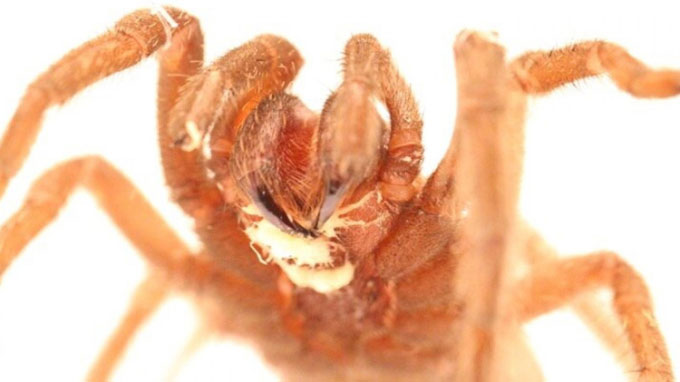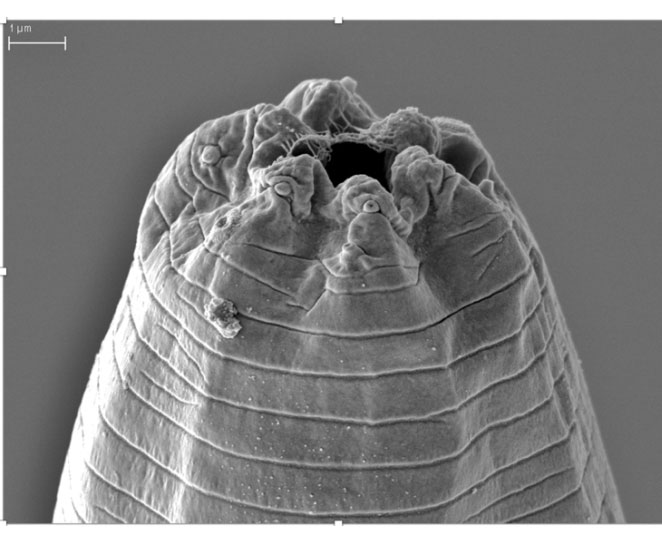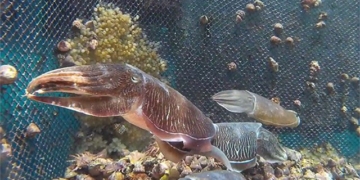When infected with a parasite, tarantulas will stop eating and may exhibit strange behaviors such as walking on tiptoes.
Scientists have discovered a new species of parasitic worm that lives in the mouths of tarantulas, slowly leading them to death. According to a study published in the journal Parasitology on January 17, this worm has been named Tarantobelus jeffdanielsi.

White patches around the mouth of a tarantula are clusters of parasitic roundworms. (Photo: Adler Dillman/UCR)
Initially, the worms appear as white patches around the tarantula’s mouth. After being infected, the tarantulas lose control of the appendages used to operate their fangs and subsequently stop eating. They may also exhibit other strange behaviors, such as walking on tiptoes.
Infected spiders will slowly die. “It can take months because tarantulas do not need to eat very often. However, if infected with this type of worm, they will starve,” said Adler Dillman, a co-author of the study and a parasitologist at the University of California, Riverside (UCR).
Dillman and his colleagues first noticed the “killer” worm species in 2018 when a tarantula breeder reported several cases of unusual deaths in his population. All these spiders had a strange white substance around their mouths. Dillman quickly realized that this was not a secretion from the spider but rather a mass of parasitic roundworms.

Close-up of the parasitic worm that kills tarantulas. (Photo: Adler Dillman/UCR)
“Roundworms have existed for hundreds of millions of years and have evolved to infect all types of hosts on the planet, including humans. Any animal you know on Earth has a type of roundworm that can affect it,” Dillman said.
To date, more than 25,000 species of roundworms have been scientifically described, but this is only the second species known to infect tarantulas. This presents Dillman’s laboratory with an exciting opportunity to study these mysterious spider-hunting worms.
Laboratory-cultured roundworms are primarily hermaphroditic, meaning they produce both sperm and eggs, allowing them to self-fertilize. On average, each hermaphroditic roundworm lays 160 offspring over its lifetime, which lasts about 11 days in the lab.
Researchers are unclear how the lifespan of the worms changes when living inside tarantulas. They also noted that the roundworms only infect the mouth area of the tarantula, with the rest of the spider remaining unaffected and unharmed.


















































